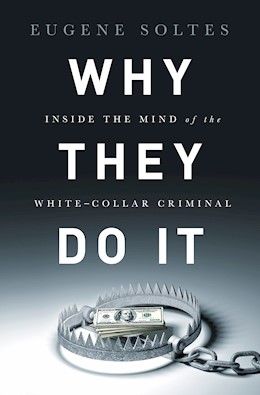Tag Archive for: Eugene Soltes

Ethical Decision Making: Easy in Training, Harder in Reality
Blog Over the course of a workday, people make innumerable decisions ranging in degrees of severity, from critical to mundane. Often times, choices are made in a vacuum and are considered for only as long as it takes until the next intellectual dilemma or distraction demands our attention. A recent piece by Eugene Soltes in Harvard Business Review explores the difficulty around ethical decision-making, while also exploring the gap between attempts to train or educate people on organizational ethics and the real-world pressures people face when face with an ethical dilemma (or even recognizing that they may be in an ethical quandary).
Over the course of a workday, people make innumerable decisions ranging in degrees of severity, from critical to mundane. Often times, choices are made in a vacuum and are considered for only as long as it takes until the next intellectual dilemma or distraction demands our attention. A recent piece by Eugene Soltes in Harvard Business Review explores the difficulty around ethical decision-making, while also exploring the gap between attempts to train or educate people on organizational ethics and the real-world pressures people face when face with an ethical dilemma (or even recognizing that they may be in an ethical quandary).
Soltes, an Associate Professor of Business Administration at Harvard Business School, points to a variety of executive misdoings by ostensibly smart and talented— not to mention prominent— leaders that illustrate that even those under scrutiny and fully aware of their responsibility for shareholder funds can act in self-serving ways that, in retrospect, they realize are obviously unethical. And, as Soltes writes, in hindsight the fact that these were adverse decisions are not lost on these individuals, but in the moment they failed to consider the impact or consequences.

Never Black and White: Eugene Soltes Exposes the Gray
Blog White collar criminals typically conjure images of dark boardrooms, wealthy conspirators and syndicated, international crime rings. Yet, in a new book, Eugene Soltes shows white collar crime is less a cause of pernicious plots and more a product of a lack of focus, proximity and context.
White collar criminals typically conjure images of dark boardrooms, wealthy conspirators and syndicated, international crime rings. Yet, in a new book, Eugene Soltes shows white collar crime is less a cause of pernicious plots and more a product of a lack of focus, proximity and context.
What distinguishes Why They Do It from others on the subject is Soltes’ extensive use of almost 50 interviews with those convicted of white collar crimes- which he defines as individuals in high social standing who committed crimes while doing business. The main takeaway is that corporate leaders are more or less normal people, who are as susceptible to the same conflicts of interest and ability to rationalize decisions made in the moment as the rest of us. By virtue of their position, however, their decisions can do harm not only to themselves but also all with whom they do business.
